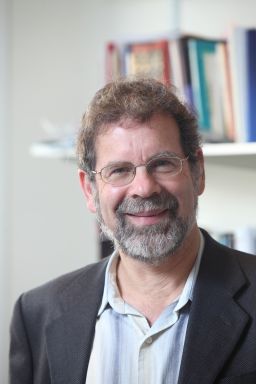Editor’s Note: Daniel Miller is professor of anthropology at University College London and is author of “Social Media in an English Village,” “Tales from Facebook,” “The Comfort of Things,” and most recently “How the World Changed Social Media.” The views expressed here are his own.
Follow him on Twitter @DannyAnth
Story highlights
Daniel Miller is an anthropologist who studies social media
He says society shapes social media more than the other way around
What is email? Seems like a silly question. Before the explosion of social media, it was simply the way people communicated on the Internet.

But the effect was astounding: Email destroyed the firm, traditional, century-old separation of work and leisure. Thanks to email, people in the Western world started to do loads of work at home and loads of personal stuff at the office.
So I thought I knew what email was and what it did. But in the course of a four-year study released today about social media use around the world, I discovered that English teenagers had no respect whatsoever for my view of email. You see they use email solely for contact with school or commerce and never for personal matters. In effect, they use email to create exactly that boundary that I thought it had destroyed. In which case: What the hell is email and what does it do?
And it’s not just email. No matter which social media platform, one of the central conclusions of our study is this: In theory, social media companies decide how users will interface with their platform. In practice, companies are often playing catchup with the creativity of users.
Just last week, Facebook introduced a range of “likes” that express a far more nuanced range approval. But many young people had already discovered how to use pictures of their own faces for an infinite range of expressions, using Snapchat.
Our evidence is that people blithely ignore the intention of designers as they repurpose their digital worlds to their own ends.
And it varies by culture.
For example, in the United Kingdom, adults use Facebook in a particularly English way: They keep their social relationships at just the right distance, neither too close nor too far. One older British woman in the study said she had a couple of cousins with whom she liked to stay in contact, but not too much contact: “We just keep in touch, because it’s just so easy to put something on Facebook. But I probably wouldn’t pick up the phone and talk to them.”
Contrast that with our field site on the Syrian-Turkish border where a Kurdish man has 500 friends on Facebook who are all relatives – relatives with whom he would otherwise likely lose touch.
But we also found that in Turkey, Facebook life is more conservative than offline life, mainly because of family, rather than any worries about state surveillance. For example, the Turks used to love posting pictures of people celebrating weddings. But after this started leading to the wrong kind of gossip, it became accepted practice among many to avoid posting pictures of the guests. Now people mostly post pictures of the wedding food.
On the other hand, in this traditional Muslim society, WhatsApp is helping to carve out an area of privacy for the first time for young men and women. They can communicate at little expense and without the knowledge of their families, changing and challenging the traditional mores of the culture. One young couple in our study exchanged 600 WhatsApp messages a day.
Even within a single country such as China, people use social media in diverse ways. In rural China, social media is viewed as a distraction from education but as good for reinforcing traditional family values. Families post loads of photos on social media to celebrate the traditional marking of 100 days from the birth of a child.
At our factory Chinese site, social media is a place where people learn about the world and where they create their ideas about modern China out of images of princesses, fast cars and metropolitan life. These images feed the dreams of some 250 million rural migrants that have come into this factory system seeking better lives.
The simultaneous migration of these workers from offline to online may even be more important to their integration into this new and different society.
All of this new data is to explain exactly why we did not call our new book, “How Social Media Changed the World” – we called it “How the World Changed Social Media.”





